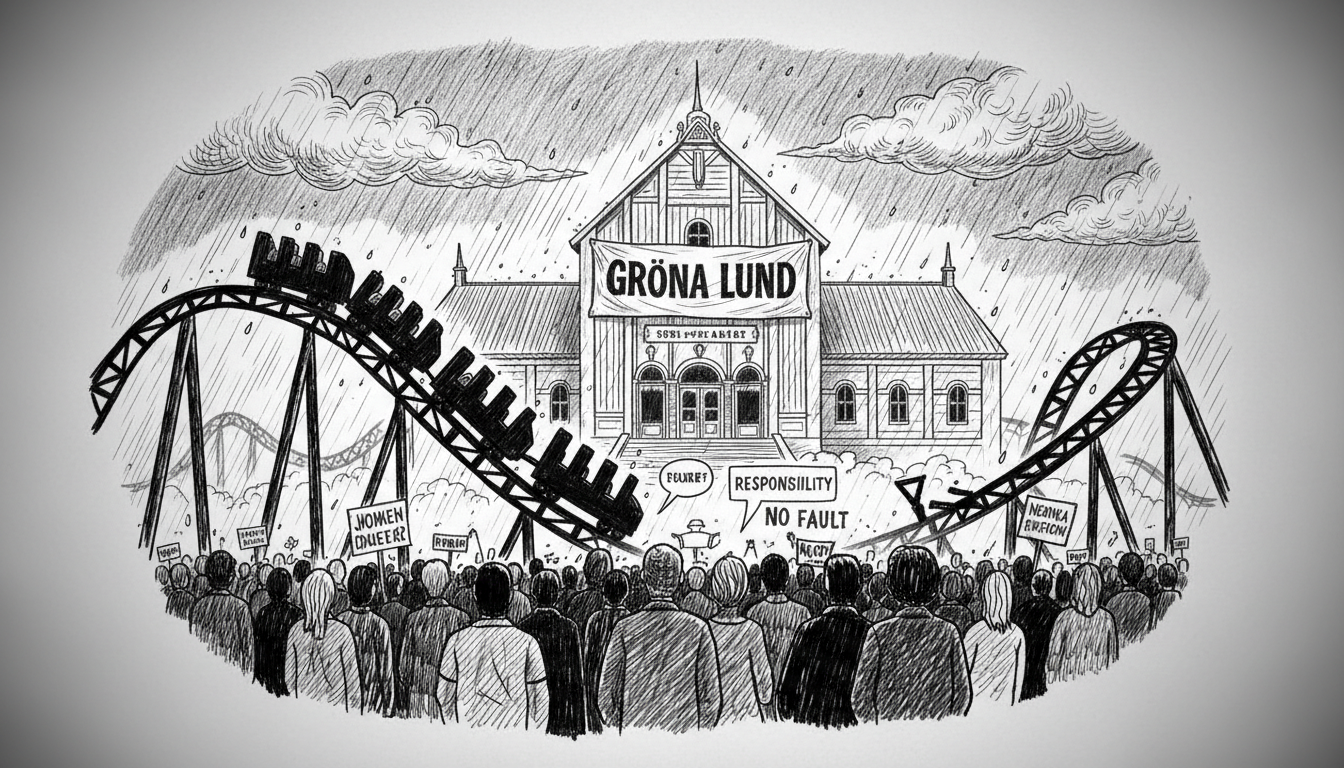The CEO of Gröna Lund amusement park says the company feels deep responsibility for the fatal Jetline roller coaster accident. But the park continues to deny criminal wrongdoing and refuses to pay compensation to victims.
This contradiction has drawn sharp criticism from Mikael and Karin Elmegard, who were seriously injured in the June 2023 incident. Karin Elmegard fell from the ride and suffered life-threatening injuries. Her husband Mikael was also thrown from the carriage but managed to cling to a beam on the roller coaster structure.
Their legal representative Anja Åström questioned the park's position. 'Gröna Lund denies the prosecutor's allegations and opposes paying compensation to the victims. So what responsibility does he mean? To me, this becomes contradictory,' Åström stated.
The couple expressed frustration with the park's public statements versus its legal strategy. 'It's not just about us two, but about everyone who experienced the accident. I actually think "Grönan" should be ashamed, while claiming to be a company for the whole family,' Mikael Elmegard told reporters.
Karin Elmegard criticized the park's lack of transparency about safety improvements. She suggested the park should inform customers about specific ride limitations if they won't accept full responsibility. 'If you don't think you should take responsibility for various things in your park, I'd like you to tell your customers,' she said.
Park CEO Jan Eriksson defended his statements outside Stockholm District Court. 'What will now be tested are the legal approaches, and that doesn't prevent us from feeling responsibility for what happened at Gröna Lund that day,' Eriksson explained. 'We have worked continuously since then to ensure it never happens again.'
The accident occurred when the front carriage's undercarriage arm broke, causing the roller coaster to partially derail. An official investigation revealed critical failures in the manufacturing and certification process of replacement parts ordered in 2019.
Sweden's Accident Investigation Authority found that Gröna Lund's order for the replacement arms lacked crucial specifications about manufacturing requirements. The manufacturer, GMW, lacked proper certification for amusement park components and missed a critical welding step, creating a part unable to withstand operational pressures.
This case highlights ongoing safety concerns in Sweden's amusement industry and raises questions about corporate accountability. The legal proceedings continue as more victims provide testimony about the roller coaster accident that has shaken public confidence in one of Stockholm's most popular attractions.
The situation reflects broader tensions between corporate responsibility and legal liability in Sweden's safety-regulated industries. Many observers question how companies can claim moral responsibility while denying legal fault in serious accidents involving clear safety failures.

